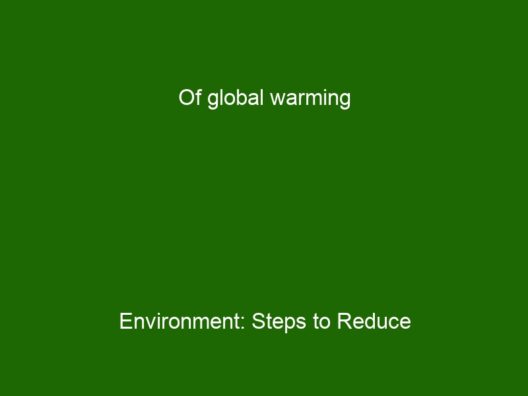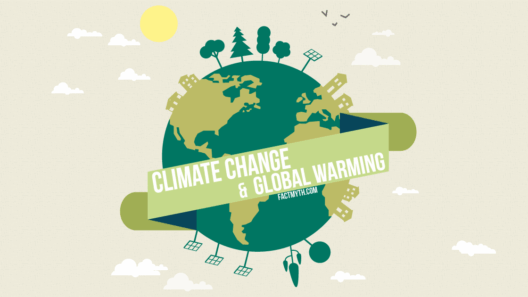In the landscape of television, few shows have dared to tread the murky waters of climate change as audaciously as *South Park*. This animated series, known for its sharp wit and irreverent humor, often embraces complex societal issues, including environmental degradation and global warming. The portrayal of climate-related topics in *South Park* serves not only as a mirror reflecting contemporary societal concerns but also as a catalyst for discourse on the pressing matter of climate change.
To comprehend *South Park’s* perspective on global warming, one must first appreciate the show’s foundational ethos: satire. Satire, much like a double-edged sword, possesses the power to both enlighten and provoke outrage. *South Park* employs this tool expertly, crafting narratives that intertwine humor and critical commentary. By dissecting societal absurdities—particularly those surrounding environmental awareness—*South Park* forces its audience to confront the uncomfortable truths concealed behind the laughter.
Early episodes of *South Park* did not overtly delve into environmental issues. However, as public consciousness around global warming began to burgeon, the creators recognized an opportunity to address these concerns through their unique lens. The episode titled “Smug Alert!” epitomizes this juncture. It explores the idea of smugness as a byproduct of environmental activism, revealing the hypocrisy that can permeate both sides of the climate debate. Here, *South Park* posits that while acknowledgment of climate change is imperative, it must not manifest as self-righteousness; instead, humility should guide the discourse.
Moreover, the episode “A Scause for Applause” incisively critiques the commodification of environmentalism. The narrative unfolds in a world where the simple act of recycling becomes a badge of honor, a performative gesture rather than an authentic commitment to sustainability. Through this lens, the show illustrates the perils of superficial environmentalism, urging viewers to look beyond surface-level actions and embody genuine stewardship of the Earth. This critique resonates deeply, as many feel overwhelmed by the sheer magnitude of environmental challenges, leading to performance-driven rather than outcome-driven activism.
One of the striking facets of *South Park’s* approach to climate satire is its use of hyperbole. The series often exaggerates scenarios to underscore the absurdity inherent in human responses to climate issues. Episodes like “The Pandemic Special” address climate change alongside global health crises, intertwining the two issues to highlight their interdependence. The juxtaposition serves as a warning: in the face of multiple calamities, inaction on climate change could incur consequences as severe as those seen in a pandemic. Through this hyperbolic narrative style, *South Park* compels its audience to perceive the looming threat of climate change not just as an environmental issue but as a social one intertwined with our collective existence.
The metaphorical language employed in the show often takes on a life of its own. For instance, climate change is likened to a festering wound—a problem that, if left untreated, will only worsen. By illustrating the ramifications of neglect, *South Park* accentuates the urgency of addressing global warming head-on. This vivid imagery resonates with viewers, making the abstract concept of climate change palpable. It transforms a distant concern into an immediate crisis that requires societal mobilization and individual accountability.
In many episodes, icons of authority—often portrayed as inept or corrupted—struggle to implement effective climate solutions. This depiction serves as a scathing indictment of political inaction and the often convoluted relationship between policy-making and environmental welfare. The skepticism that *South Park* instills towards government and corporate entities mirrors the sentiments of many individuals disillusioned by broken promises and shallow pledges regarding climate action. By framing these entities as ludicrous figures, the series inspires active scrutiny of those in power, advocating for a more engaged and informed populace that demands accountability.
However, *South Park* does not solely abrogate responsibility from its viewers. The show embodies a fundamental belief in collective agency. Episodes that bring attention to individual actions, such as the eco-friendly choices made by the characters, subtly underscore the ripple effect of personal commitment to environmental sustainability. This portrayal exhorts viewers to recognize their potential impact, cultivating a sense of empowerment that extends beyond the screen. The humorous but poignant exploration of character arcs serves as a reminder that each trivial choice holds significance in the grander scheme of ecological preservation.
Interestingly, *South Park’s* engagement with climate change resonates within a broader cultural context. Popular media often grapples with the intricacies of environmental stewardship, yet it frequently relies on idealized representations. In contrast, *South Park* revels in its imperfections, embracing raw humor to confront uncomfortable realities. This unique appeal lies in its ability to foster dialogues that are candid and grounded in the lived experiences of its audience. The comedic relief, while simultaneously incisive, creates a space where difficult conversations about global warming can thrive.
In sum, *South Park* intertwines its irreverent humor with critical environmental commentary, establishing itself as a deceptively profound commentator on climate change. Through satire, hyperbole, and vivid metaphor, the show highlights the absurdity, urgency, and interconnectedness of climate issues within our contemporary context. It encourages individuals to reflect on their roles as stewards of the Earth, advocating for a collective reckoning with the reality of global warming. As the narrative of climate change continues to evolve, one thing remains clear: *South Park* will be there, amplifying the discourse in ways that only it can, ensuring the conversation remains both consequential and comical.







